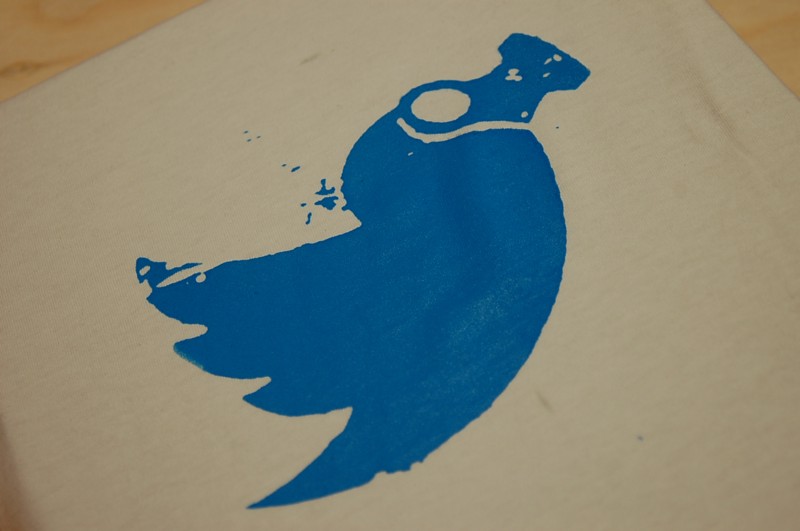With Trump in the White House, Arts Issues Are Everyone’s Issues Now
by Ian David Moss, Vice President, Strategy & Analytics at Fractured Atlas

Last month, the cast of Broadway’s most popular show made a political statement from the stage…and the President-elect of the United States of America demanded, via tweet, that they apologize for it.
Let’s take a minute to stew on that. Commanders-in-chief of the United States have gotten involved in the arts before, but mostly to resolve disputes, not create them; to celebrate artists, not berate them. Moreover, unlike most of the controversies from the late 1980s and early 1990s at the height of the so-called culture wars, the contested speech did not involve desecration of treasured religious symbols or explicit sexual content. Only a statement of less than complete fealty to the administration-in-waiting.
https://www.youtube.com/watch?v=GMp6WHWJHf4
It’s reasonable to wonder what the election of Donald Trump means for the arts. Trump’s was actually the only campaign during the primary season to answer Alyssa Rosenberg’s questionnaire about arts policy priorities back in March. His responses mostly articulate a free-market, libertarian-ish approach to arts policy and a willingness to delegate most of the decision-making to Congress, though he does state his opposition to net neutrality. (Oddly, he also makes a point to say that there is “no Constitutional obligation” for the president to host artists at the White House.) The day after the election, Americans for the Arts was out with a statement that emphasized bread and butter issues for the organization, including support for the National Endowment for the Arts and arts education. A few publications and organizations have attempted to grapple with the reality of Trump as president both before and after the election, trying to read tea leaves from random clues like the fact that he once trademarked the name Trump Art Collection but has yet to use it, or that Mike Pence’s wife is a painter.
But zeroing in on arts-specific policy is usually the wrong way to understand the most important issues in the arts, as my colleague Lauren Ruffin deftly pointed out in a recent post on the Fractured Atlas blog. Even for those who were predicting (or rooting for) a Trump win, the news of his accession to the Oval Office is a shock to the status quo of governance style and priorities for the Earth’s richest and most powerful nation. Trump potentially represents such a tectonic shift that events that would once have been considered drastic, like having the NEA disappear completely, could end up being small potatoes in the face of what’s to come.
At present, no one really knows what to expect from the Trump administration. Predictions are flying fast and furious, and run the gamut from our core institutions and policies will remain intact to Trump won’t even get through his first full term to Trump will usher in a new era of authoritarian dystopia from which we may never recover. Though wildly disparate, I would argue that these three basic paradigms — the aspirational statesman, the incompetent nepotist, and the dictator-in-chief — in combination form a good model of what to expect, as I think we have seen all of them in Trump and his team throughout the campaign and now during the transition period.
While the paradigms are not mutually exclusive, it matters a lot for our collective wellbeing which of them ends up becoming dominant, and which of them are reinforced by the rest of our governing infrastructure and society. This is true not only for the United States but the rest of the world as well. Arguably never before in human history has so much power been placed in the hands of someone with so little respect for convention and so unbeholden to anyone other than himself. President Trump is about to have at his disposal the world’s largest military and nuclear arsenal, the vast spying powers of the NSA, and a massive regulatory and law enforcement apparatus. In peacetime, the nation’s system of checks and balances — Congressional oversight committees, whistleblower protections, etc. — may be robust enough to prevent significant abuses of that power. The truly telling moments are likely to be those that take place just after a major terrorist attack on American soil, or after a naked provocation by the likes of North Korea, when US citizens will be under tremendous pressure to close ranks and show loyalty to the commander-in-chief. How we respond to moves on the administration’s part to consolidate power will be hugely consequential for the future of our democracy.
And that’s where the arts come in. If Donald Trump wants a playbook for bending the democratic institutions of the United States to his will, he unfortunately has plenty of recent examples from which to draw:
- In Russia, of course, Vladimir Putin has effectively instituted one-party rule by using the power of the regulatory state and control of the national media (not to mention, allegedly, targeted assassinations) to neutralize political opponents and grassroots opposition alike. It’s important to remember that though he now seems to rule Russia with an iron fist, Putin originally came to power via the will of the people; he was democratically elected President of Russia in 2000. Art and media are by no means exempt: Putin’s Russia shames cultural dissidents on national television, engages in modern propaganda techniques and “information warfare” to pursue its agenda abroad, and crushes local cultural planning efforts if they are too independent, just to name a few recent examples. The Denmark-based organization Freemuse deemed Russia the third-worst enemy of artistic expression in the world last year, as measured by confirmed instances of politically-motivated prosecutions, threats, and physical attacks against artists.
- In Turkey, President Recep Tayyip Erdoğan is following in Putin’s footsteps in many ways, despite tensions between the two leaders. Erdoğan was first elected Prime Minister in 2003, and has gradually manipulated the political system to remain in power since then. Once considered a relatively moderate leader during his first years in office due to his pro-Western orientation (Turkey has been trying to gain membership in the European Union for over a decade), Erdoğan rapidly accelerated his embrace of repressive policies after the 2011 elections. A “culture war” that began that year when Erdoğan felt his daughter was disrespected during a theater performance when she was in the audience (sound familiar?) has since spurred increasing attempts to exercise political control over the state arts funding apparatus. Erdoğan used an unsuccessful coup attempt earlier this year as an excuse to crack down even more on free speech, shutting down and seizing the assets of 29 publishing houses accused of aiding the enemy, and jailing more than 120 journalists. (In researching this item, I discovered that a Turkish publication Createquity linked to when reporting on these controversies two years ago was among the victims of this purge.) The aforementioned Freemuse claims that Turkey and Russia belong, along with China, Iran, and Syria, to “a special league of countries that systematically repress freedom of expression,” with more than half of the recorded violations against artists worldwide originating in those nations.
- In Hungary, Prime Minister Viktor Orbán (who has already received an invitation to Washington from President-elect Donald Trump) pushed through a series of legislation and constitutional reforms tightening controls on the media with the help of an elected parliamentary supermajority following his election in 2010. The ensuing changes to the environment have prompted the watchdog organization Freedom House to downgrade Hungary’s press environment rating from “Free” to “Partly Free.” Meanwhile, a shadowy right-wing organization called the Hungarian Academy of Arts has asserted increasing control over arts institutions in the country following its transition from an independent private organization to an official government body.
- We are arguably seeing the earliest iterations of this story now in Israel, where controversial culture minister Miri Regev has made no secret of her desire to reshape Israel’s cultural establishment in her ultranationalist image. A former chief censor for the military, she has expressed contempt for the notion of an independent public media. And a group of Israeli artists and arts organizations is suing her ministry over threats to withdraw funding from organizations that refuse to perform in Israeli settlements in the West Bank and other so-called “loyalty tests.”
We see in each of these examples how the arts, artists, and media are often among the first to be singled out when an authoritarian government seeks to impose itself on the people. Indeed, when considering issues in the arts globally, freedom of expression is arguably at or near the top of the list, given that well over a billion people live under a regime in China that actively seeks to control its citizens’ access to information and ideas. With a Trump presidency on its way, that issue looms with new urgency over the United States as well. In the coming months, Fractured Atlas and Createquity will be watching the administration and Congressional leadership closely for any attempts to consolidate power or exert control over the media, as these issues are now intricately connected with the health of the arts ecosystem in America.
Other arts issues and research questions that have arguably become more urgent, present, or resonant with this election outcome include:
- Under what conditions are arts for social change efforts and arts-based anti-oppression strategies effective at shifting societal attitudes towards greater tolerance and empathy for others?
- What are the ingredients of successful social movements, and do the arts have a role to play?
- Are there disparities in access to the arts and opportunities to make a living as an artist by geography, particularly in rural areas, and does this have an effect on political discourse?
If we are looking for ways the arts and artists can play a productive role in the healing of our nation, the above questions are most likely to get us there. The 2016 election laid bare not only a seething undercurrent of bigotry and xenophobia in our midst, but also just how politically and culturally segregated America has become. Are the arts part of the solution? Have they been part of the problem? We ought to find out.
Twisting a vibrant democracy such as the United States toward authoritarianism is hard work, and it’s not clear yet whether Trump will be up to the challenge. But make no mistake: we are in a vulnerable position. Support the media sources you trust, by subscribing or donating, as they will need your help more than ever. Support organizations such as the ACLU that will be looking to contain abuses through the judiciary system. Talk frequently to the Trump supporters who may be in your life and seek to understand them so they may be more inclined to understand you. Lobby your elected officials and start organizing now to prevent an expansion of the administration’s reach in Congress in 2018 and beyond, which also means getting involved at the state and local level (state legislatures will be redistricting Congressional districts for the next decade in the next two years). Watch out for any move on the part of the Senate to eliminate the filibuster — if that happens, it is a bad sign.
And finally, don’t forget to support artists. If we don’t, who will?
About Fractured Atlas
Fiscal sponsor, fundraising platform, educational resource, advice from a staff of experienced artists & creatives. We’re rooting for you!

